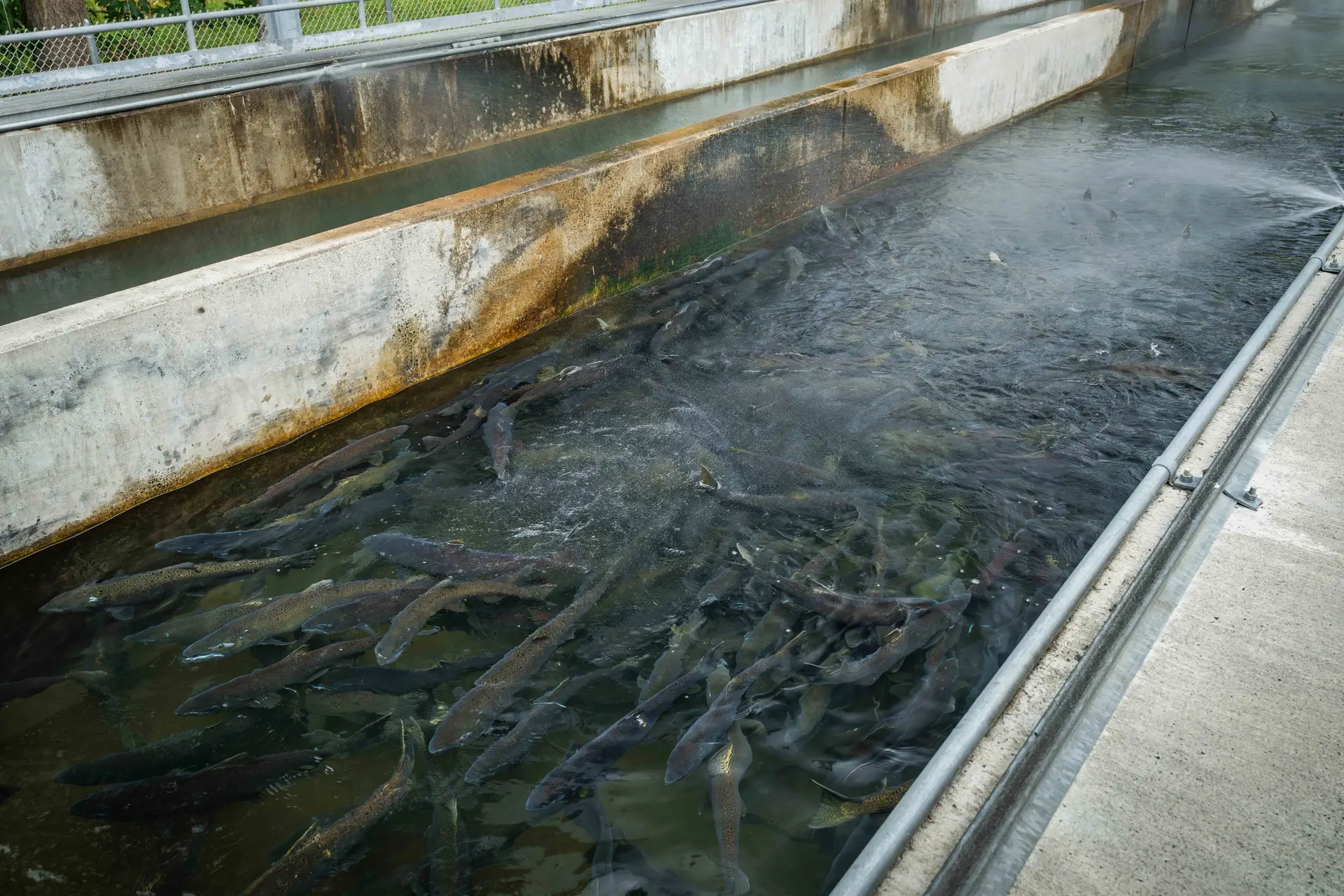
For Immediate Release
September 26, 2024
PDF Version
Contacts:
Emma Helverson, Wild Fish Conservancy, emma@wildfishconservancy.org, 484-788-1174
David Moskowitz, The Conservation Angler, david@theconservationangler.org, 971-235-8953
Brian Knutsen, Kampmeier & Knutsen, PLLC, brian@kampmeierknutsen.com, 503-841-6515
Rob Kirchner, The Conservation Angler, rob@theconservationangler.org, 971-235-8953
On Friday, September 19th, Wild Fish Conservancy (“WFC”), The Conservation Angler (“TCA”), and the Washington Department of Fish and Wildlife (“WDFW”) submitted a joint consent decree in the Western District Court of Washington to settle claims in an Endangered Species Act (“ESA”) lawsuit regarding the funding and operation of Mitchell Act and Select Area Fishery Enhancement (“SAFE”) program hatcheries in the lower Columbia River below Bonneville Dam.
The agreement requires WDFW to take essential measures that will result in more responsible, legally permissible, and transparent management practices at the Mitchell Act hatcheries they operate. Specifically, the consent decree requires the termination of the Deep River net pens coho program and the non-native Washougal steelhead program, as well as a reduction in the release of Chinook from the Kalama/Fallert program. We are also encouraged that this agreement paves the way for collaboration between Washington and Oregon to advance alternative commercial fishing methods with the goal of reducing hatchery straying and supporting the recovery of wild salmon and steelhead populations.
“The settlement agreement is a favorable outcome for at-risk wild salmon and steelhead populations in the Columbia River. While we are encouraged by this positive development, we remain discouraged by our fishery management agencies’ recurring failure to comply with the ESA when managing Columbia River hatcheries,” said David Moskowitz, Executive Director of The Conservation Angler.
In April 2024, WFC and TCA initiated legal action against WDFW, the Oregon Department of Fish and Wildlife (“ODFW”), Clatsop County, and NOAA Fisheries under the ESA. The purpose of this lawsuit is to safeguard vulnerable wild fish populations from ongoing documented harm caused by Columbia River hatcheries. The complaint argues the defendants are failing to comply with vital limitations and safeguards required by the ESA and recognized by NOAA Fisheries as necessary to prevent the extinction of at-risk wild salmon and steelhead. WFC had previously litigated over these same Columbia River hatchery programs in 2016 to force NOAA Fisheries to comply with the ESA when funding and authorizing Mitchell Act hatcheries.
“We are disheartened that, nearly a decade later, the responsibility for enforcing the ESA continues to require public intervention, and that non-compliant hatchery programs have been allowed to perpetuate harm to wild salmon, steelhead, and Southern Resident killer whales threatened with extinction,” said Emma Helverson, Executive Director of Wild Fish Conservancy.
WFC and TCA continue to litigate against NOAA Fisheries, ODFW, and Clatsop County to ensure that our states’ iconic salmonid species receive the ESA protections they are afforded by law.
###
The groups are represented by Kampmeier & Knutsen, PLLC of Portland, OR and Seattle, WA, and Rob Kirschner of The Conservation Angler kampmeierknutsen.com
Wild Fish Conservancy is a nonprofit conservation organization headquartered in Washington State and working from California to Alaska to preserve, protect and restore the northwest’s wild fish and the ecosystems they depend on, through science, education, and advocacy. wildfishconservancy.org
The Conservation Angler fights for the protection of wild Pacific anadromous fish populations and their watersheds throughout the Pacific Northwest and Russia’s Kamchatka Peninsula. theconservationangler.org
Additional Reading:
Photo:
Kalama Falls Fish Hatchery (Kalama, WA) where Washington Department of Fish and Wildlife has agreed to reduce
hatchery production to comply with the Endangered Species Act and reduce harm to wild fish. Photo by Conrad Gowell